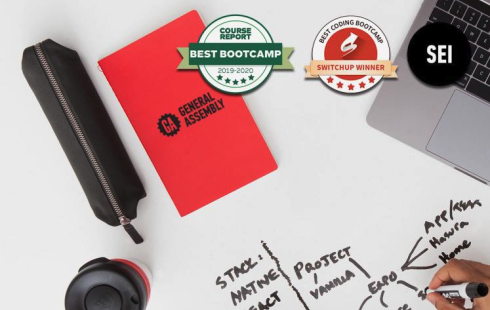General Assembly’s Software Engineering Immersive is a transformative course designed for you to get the necessary skills for a coding role in three months.
The Software Engineering bootcamp is led by instructors who are expert practitioners in their field, supported by career coaches that work with you since day one and enhanced by a career services team that is constantly in talks with employers about their tech hiring needs.
What you'll accomplish
As a graduate, you’ll have a portfolio of projects that show your knowledge of fundamental programming concepts, as well as experience with languages, frameworks, and libraries that employers demand. Throughout this expert-designed program, you’ll:
Create a front-end web application with modern JavaScript frameworks such as Angular or React.
Develop and deploy full-stack applications with in-demand technologies such as Ruby on Rails, Python with Django, and Express with Node.js.
Build secure full-stack applications by leveraging common design and architectural patterns like model–view–controller (MVC) and Representational State Transfer (REST).
Practice version control and collaborative software development with Git and GitHub.
Safely model and store data in SQL and NoSQL databases.
Consume and integrate third-party application programming interfaces (APIs) in an application.
Why General Assembly
Since 2011, General Assembly has graduated more than 40,000 students worldwide from the full time & part time courses. During the 2020 hiring shutdown, GA's students, instructors, and career coaches never lost focus, and the KPMG-validated numbers in their Outcomes report reflect it. *For students who graduated in 2020 — the peak of the pandemic — 74.4% of those who participated in GA's full-time Career Services program landed jobs within six months of graduation. General Assembly is proud of their grads + teams' relentless dedication and to see those numbers rising. Download the report here.
Your next step? Submit an application to talk to the General Assembly Admissions team
Note: reviews are referenced from Career Karma - https://careerkarma.com/schools/general-assembly


